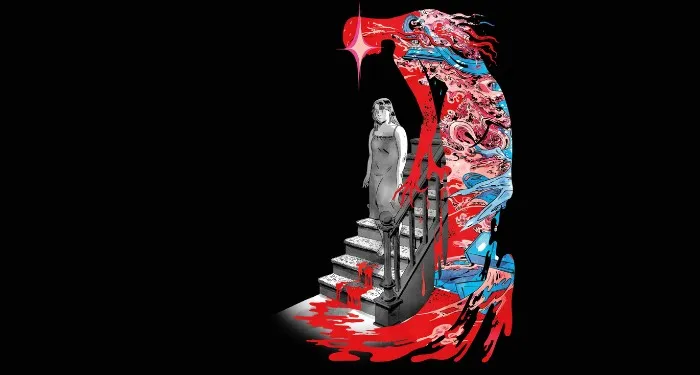During his first presidential campaign Donald Trump famously claimed that he could “stand in the middle of Fifth Avenue and shoot somebody” and not lose any voters. At the time it felt like an empty boast. No more.
Between September 2 and September 19 the US military, acting on President Trump’s orders, bombed at least three boats traveling in international waters, killing a total of at least seventeen civilians in cold blood. Ordinarily when US armed forces kill civilians, the president does not brag about it, yet Trump is apparently so proud of the executions that he posted video footage of them on TruthSocial. And while ordinarily the killing of any civilian prompts investigations and apologies, in this instance the administration has promised only that there are more to come. As he put it on TruthSocial, “BE WARNED—IF YOU ARE TRANSPORTING DRUGS THAT CAN KILL AMERICANS, WE ARE HUNTING YOU!”
There was no conceivable legal authority for these killings. We are not at war with drug traffickers. The “war on drugs” is a metaphor, not a legal term of art that authorizes killing the “enemy.” The human beings on these boats were civilians, and even if there were an actual war going on, the laws of war prohibit targeting civilians unless they are directly engaged in hostilities. Even if the boats’ occupants were, as the administration alleges, carrying illegal drugs—something we will never know now that the evidence is at the bottom of the sea—that offense would at most have authorized their arrest, trial, and, if convicted, incarceration for a period of years. It would not authorize the death penalty, much less their summary execution without trial.
Trump has called the dead “narcoterrorists” and has asserted that the eleven killed in the first strike were associated with the Venezuelan gang Tren de Aragua, a “foreign terrorist organization.” But that designation authorizes only economic sanctions against the group, such as freezing their assets, and criminal penalties against Americans who do business with them. It does not authorize any use of military force, much less the intentional lethal targeting of civilians.
The boats did not pose any conceivable threat to the United States requiring lethal force. They were found on the high seas, reportedly coming from Venezuela. The first boat, according to The New York Times, had turned around before it was bombed, and the military reportedly continued to bomb it even after it had been disabled. Secretary of State Marco Rubio acknowledged that they could have interdicted the vessel, but said that instead they bombed it to send a message: “This president is not a talker; he’s a doer—he’s going to do it.”
*
Trump has maintained that drug cartels kill tens of thousands of Americans every year, presumably through overdoses, and that other nations are not doing enough to stop the trade. The result, he insisted in a letter to Congress after the first strike, is that “we have now reached a critical point where we must meet this threat to our citizens and our most vital national interests with United States military force in self-defense.” But the fact that drugs are a scourge in the US in no way gives the president the authority to start killing drug dealers—here, abroad, or at sea. And it is farcical to cite “self-defense” to justify bombing these ships to smithereens, without even a shred of evidence that they threatened to attack us.
In the absence of any conceivable military justification for these acts, it is difficult to view them as anything but premeditated murder, pure and simple. Federal law makes it a crime to kill a human being “with malice aforethought” on the high seas, and to conspire to do so. As my Georgetown Law colleague Marty Lederman, a former Justice Department official in the Office of Legal Counsel, has explained in an essay on the website Just Security, not only is it “questionable whether the President had any affirmative legal authority to order” the attack, it is hard to escape the conclusion that, “absent further facts that haven’t yet been disclosed, the strike would appear to have implicated the federal felony murder statutes.”
Maybe “most alarming,” in Lederman’s estimation, is how dramatically these killings break from the defense department’s stated commitment, required by international law, not to target civilians, even in wartime. Indeed, Trump’s actions are so indefensible that even John Yoo, who as a Justice Department official authorized waterboarding and other forms of torture against suspected al-Qaeda detainees, and who takes about as robust a view of executive authority over national security as anyone, has seriously questioned the legal basis for the strikes, insisting that it is dangerous to blur the line between law enforcement and war.
But the White House could care less. This was made crystal clear when Vice President J.D. Vance, ever the good learner at the foot of his boss, posted on X that “killing cartel members who poison our fellow citizens is the highest and best use of our military.” When Brian Krassenstein, a critic of the Trump administration, replied that “killing the citizens of another nation who are civilians without any due process is called a war crime,” the vice president of the United States responded, “I don’t give a shit what you call it.”
This is not normal. Prior presidents have invoked war authorities on dubious grounds to justify the use of lethal force and other unlawful measures, as when Ronald Reagan ordered the invasion of Grenada on the pretense of protecting Americans in medical school there, or when George W. Bush asserted the authority to disappear suspected al-Qaeda terrorists into secret CIA “black sites” and torture them, or when Barack Obama resorted to drones to assassinate suspected members of al-Qaeda or ISIS. Each questionable exercise of executive authority eases the way for further expansions. But never before has a US president asserted the authority to order the cold-blooded execution of civilians outside any even arguable military conflict. And never before has a US president then turned around and boasted about his own crimes to the public at large. If the president can order the summary killing of drug dealers on the high seas, why not elsewhere—say, Mexico, or Chicago?
Now a draft bill is reportedly circulating in Congress and the White House that would expressly authorize Trump to execute more “narco-terrorists,” a veritable license to kill civilians without trial. The fact that the White House and its allies are considering such a bill only underscores the absence of existing authority for the strikes. Such a blank check, moreover, would not change the fact that targeting civilians who are not directly engaged in combat is illegal under international law. It would just make Congress complicit in Trump’s crimes.
*
When the Supreme Court last year granted President Trump absolute immunity from any criminal prosecution for “official” acts taken while in office, Justice Sonia Sotomayor warned in her dissent that the Court was giving presidents a green light to kill. Trump has now apparently acted on that opportunity—by his own count, on at least three separate occasions. Yet, in keeping with his 2016 campaign boast, as far as we can tell Trump has not lost any support to speak of as a result. Indeed, amid the White House’s barrage of daily assaults on the rule of law, the killings seem barely to have registered on the nation’s conscience.
So much of what Trump has done since taking office is beyond the pale that it’s easy to lose track. He’s pardoned the January 6 rioters, even those convicted of violent attacks on police. He’s invoked the Alien Enemies Act, a wartime authority, to summarily deport Venezuelans, even though we are not at war with that country. He’s dismantled agencies that Congress established, and refused to spend billions of dollars that Congress directed him to spend. He’s tried to deny birthright citizenship to the children of immigrants, in direct violation of the Fourteenth Amendment. He’s used pretextual charges of antisemitism to target universities he considers too liberal, and imposed blatantly unconstitutional penalties on law firms for filing cases or hiring attorneys he does not like.
But since long before the founding of this nation, the law has recognized that in the hierarchy of illegal and immoral acts, premeditated murder sits at the very apex. The US remains one of the only democracies to continue to employ the death penalty, a punishment most of the world has rejected as cruel and unusual. But at least there are limits on that sanction. It can only be imposed for homicide (not drug smuggling), and only after a full trial and a robust round of appeals. The hapless—and thus far nameless—persons on board the boats that Donald Trump literally had blown out of the water this month did not even get that.




















 English (US) ·
English (US) ·